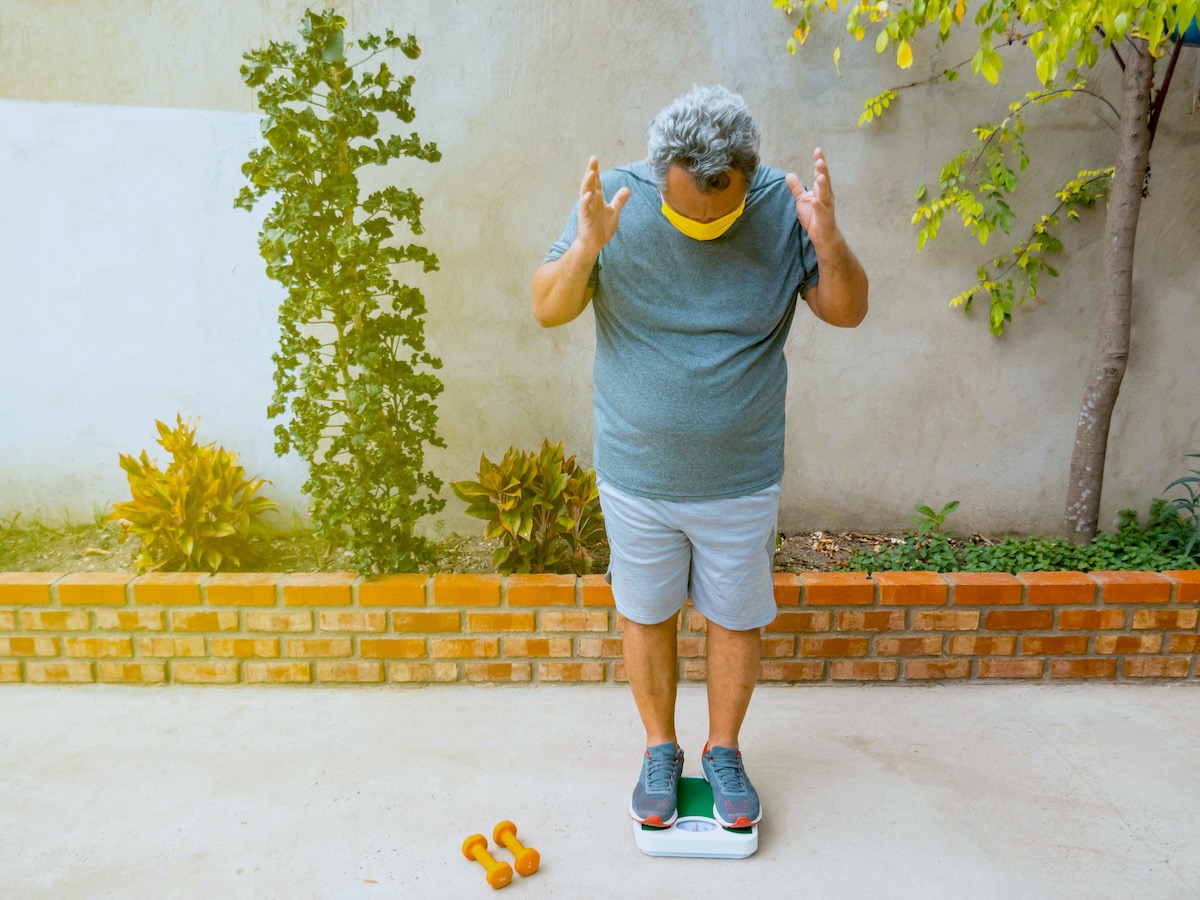Weight Gain Before and After
The first thing to note is that weight gain is not the type of symptom that occurs on a whim, nor is it uncontrollable even when it is related to anxiety.
You should also note that weight gain is still weight gain like any other. Even if it is linked to anxiety, healthy diet and exercise is important, and something you should strongly consider both for your weight and for your anxiety.
Anxiety Can Cause Weight Gain
Weight gain can be a symptom of anxiety. But anxiety does not always cause weight gain. That is because the relationship is fairly complicated. The causes of gaining weight from anxiety are as follows:
-
Cortisol Stress Hormone
The key reason that some people with anxiety have trouble managing their weight is because of the stress hormone cortisol. Cortisol is released during times of stress, which means that it is also released during anxiety. Cortisol causes fat to build up around the midsection and is one of the primary reasons that those with stress have trouble maintaining their weight.
-
Excess Eating Behavior
In some people, anxiety can also trigger excess eating. This may occur for two reasons. First, some people find that food provides a valuable coping tool, because it may release endorphins which improve the mood. Second, some people experience more hunger when they are stressed. Not everyone experiences either of these reactions, which is why not everyone gains weight. The differences may also be very subtle, and you may not realize you are eating more than you used to.
-
Inactivity
In addition, some people find that anxiety is very draining. They may sleep more, or they may sit at home more than they used to. This level of inactivity means that they are burning fewer calories, which in turn means they gain more weight. Due to the restrictions we have had to endure during the pandemic, inactivity has become even more pronounced than usual.
What is interesting is that some people experience the opposite. There are those that struggle to get hungry when they are stressed, and those that find that when they have anxiety they need to be constantly moving. Every person reacts to anxiety differently, which is one of the reasons it does not always seem like weight gain is a symptom.
Weight Gain Can Cause Anxiety
Another reason that anxiety and weight gain have a complex relationship is because weight gain – or rather, the reasons that people gain weight – can also cause anxiety.
Inactivity is one of the reasons that some people develop anxiety. The body needs to move. It was designed to move. Those that do not exercise are considerably more likely to develop anxiety disorders.
Weight gain can also lead to poor breathing habits, which are known to trigger anxiety symptoms and panic attacks. Unhealthy foods may also contribute to anxiety – although they rarely cause it – and poor sleeping habits and aging can lead to both weight gain and anxiety even though the two are unrelated.
Some people also become more anxious when they gain weight simply because they lose confidence in themselves. All of these are reasons why the relationship between anxiety and weight is so complex.
How to Control Your Anxiety Related Weight Gain
It does not matter what causes you to gain weight. Diet and exercise are still the most effective solutions. Make sure that you are eating healthy with the right calories, and that you are exercising regularly. There is no magic pill that will cause you to lose weight – in fact, many diet pills and diets can actually increase anxiety. You simply need to start taking care of your body, and your weight will follow.
The good news is that exercise and healthy eating are actually incredibly effective tools for combating anxiety as well. So, in a way, it does not matter which comes first – you are reducing both when you start exercising regularly.
A Final Thought About Stress and Anxiety Treatment
Combining regular exercise, healthy eating, and Cranial Electrotherapy Stimulation (CES) give you an enhanced way to combat anxiety-related weight gain. Data from clinical studies and practical application reflect the positive results that may be gained by applying low amplitude, extremely low frequency (ELF) electric currents, through the Vagus nerve system. The CES Ultra cranial electrotherapy stimulator device incorporates both ELF currents and ear clip attachments, as part of its standard application to treat stress and anxiety without medication.

Rated 4.8/5 based on 18 user reviews
Feel Like A New Person
My body had actually lost its ability to fall asleep naturally and now, just the thoughts of going to sleep had become a great source of daily stress and anxiety for me. So bad was this problem that when it was actually time for me to go to bed… I would lie there wide awake for hours. The CES Ultra gave me my life back, and I feel like a new person again.
– Wayne R.
Citations
- CalmClinic – Can Anxiety Cause Weight Gain? (original publication)
- CES Ultra – What is CES?
- CES Ultra – Non-Drug Relief From Stress And Anxiety.

